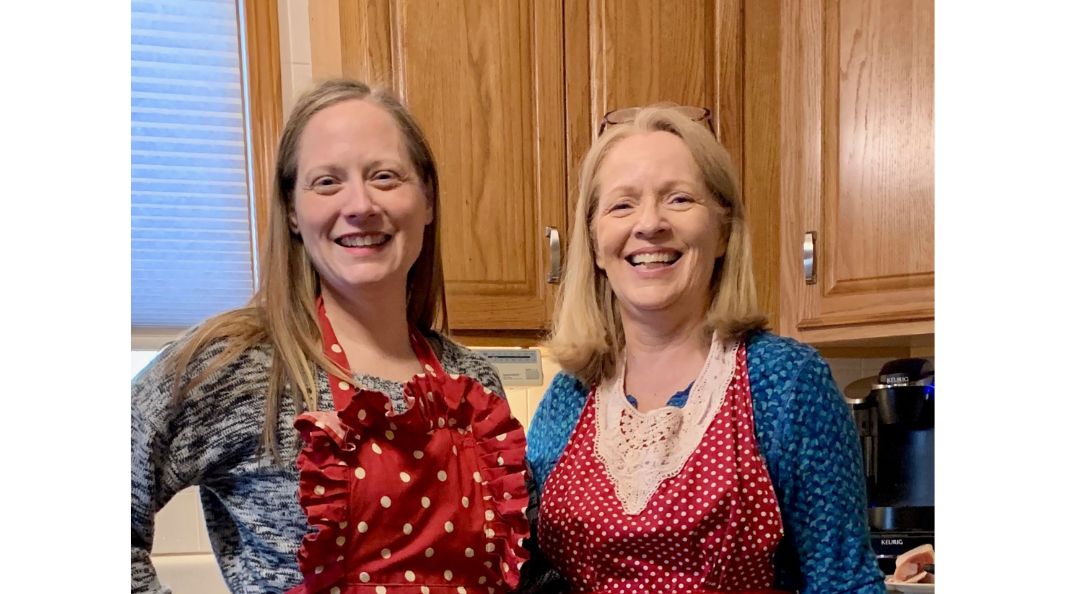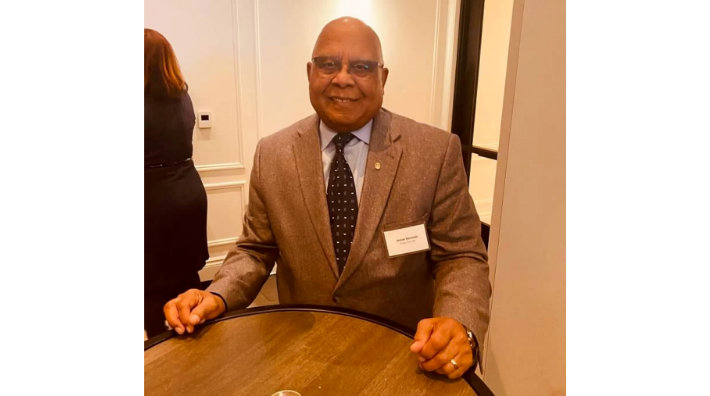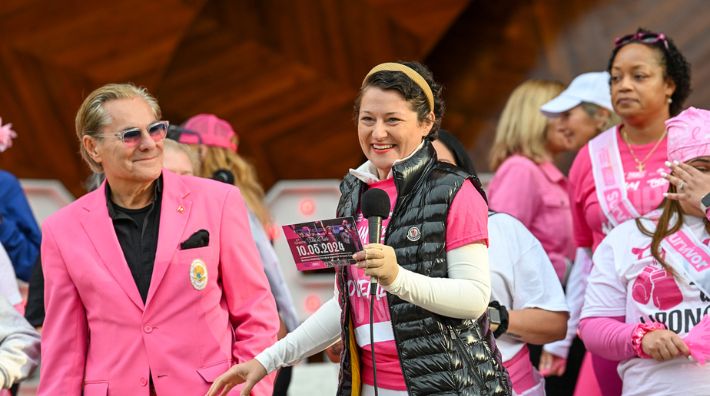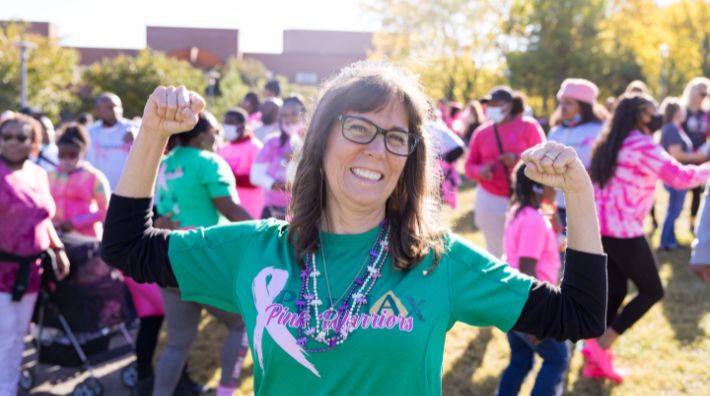Stories of Hope
Cancer survivor stories from the American Cancer Society.
Published on: February 4, 2026
After surviving cervical cancer, Danielle Massi turned her diagnosis into action, sharing her story to inspire others to advance cancer research.
Published on: November 18, 2025
During a routine mammogram, doctors found something unusual in Patty Schone’s left breast. But the real danger was actually hiding in her right breast. Patty was diagnosed with ductal carcinoma in situ (DCIS) in her left breast and was scheduled for a mastectomy. But her surgeon ordered a bilateral MRI prior to surgery as a follow-up test because Patty has dense breast tissue. The MRI revealed something more serious: invasive lobular carcinoma (ILC) in her right breast. It was stage 1B and had already spread to a lymph node.
Published on: November 11, 2025
Prostate cancer is something that has been on Baltimore resident Jesse Bennett’s radar since he was in his early 40’s. That was when Jesse first had a PSA (prostate-specific antigen) level drawn, the blood test used to screen for prostate cancer. In 2009 when Jesse was 62, his PSA result was higher than in previous years. As a next step, Jesse’s doctor recommended a prostate biopsy to determine if the change in his PSA level was from cancer or another problem. Results showed cancer cells were found and that the cancer was an aggressive type.
Published on: October 21, 2025
At 35 years old, Charlotte de Brabandt moved from Switzerland to Boston, Massachusetts. She was excited for a new adventure and an opportunity to grow in her career. But after just three months in Boston, she received news that changed her life. She was diagnosed with stage III triple-negative inflammatory breast cancer, a very rare, aggressive type that requires an aggressive treatment plan.
Published on: October 14, 2025
Laura Renegar is no stranger to the impact cancer can have on a family. Her mother was first diagnosed with breast cancer in 1985, and sadly, her mother passed away from the disease. Then in 2011, just days after having a routine screening mammogram, Laura was devastated to find a lump in her own breast. She was 46 years old.








